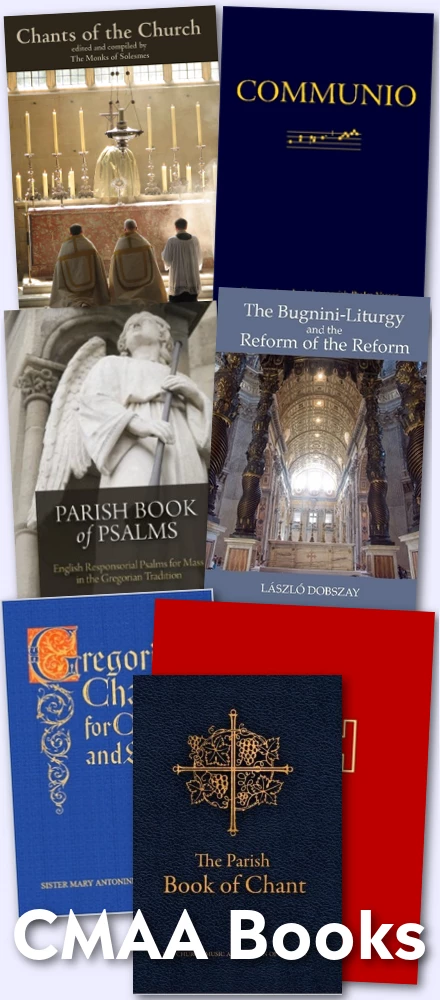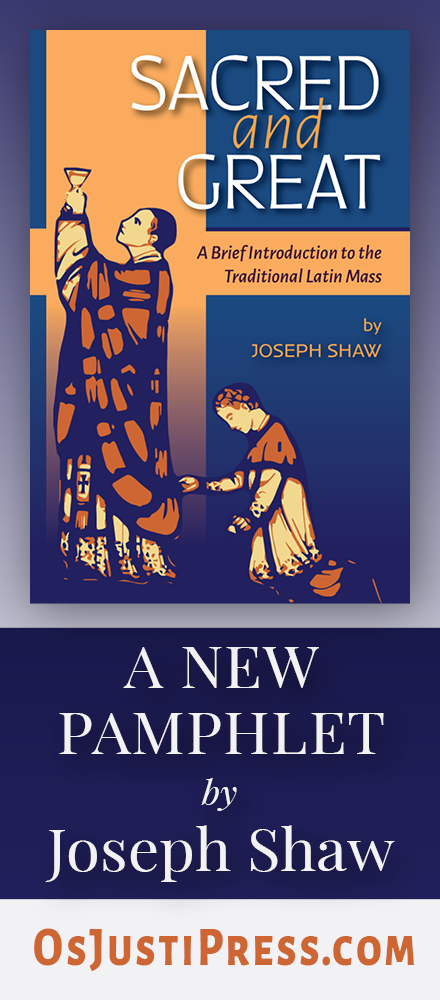by Sandro Magister
ROMA, March 6, 2006 – The founders and heads of the Neocatechumenal Way, Kiko Argüello (see photo), Carmen Hernández, and Father Mario Pezzi, have decided to obey the severe reprimand issued to them by Benedict XVI on January 12. But they did so with strong reservations over one point in particular: Eucharistic communion.
Their act of partial obedience is found in a letter that they wrote to the pope on January 17. The letter – reproduced here below – was made public on February 27 by the Catholic website www.korazym.org.
Benedict XVI’s reminder concerns the manner in which the Neocatechumenal groups celebrate the Mass. The pope wants them to conform to the prescriptions of the liturgical norms that are valid for the whole Church.
For example, the Neocatechumenals receive communion seated, around an altar that is shaped and decorated like a large, square dinner table. They divide and consume a large leavened loaf, made with two-thirds white flour and one-third whole wheat flour, which is prepared and baked for a quarter of an hour, all according to detailed rules established by Kiko. They drink the wine from cups that are passed from hand to hand, always in a seated position.
But the pope wants them to “pass to the normal way in which the entire Church receives Holy Communion,” within no more than two years’ time. The details of this request and others are set forth in a letter dated December 1, 2005, written in the name of the pope to the heads of the Way by cardinal Francis Arinze, prefect of the Vatican congregation for the liturgy: a letter made public by www.chiesa.
And so, in their reply to Benedict XVI, Kiko, Carmen, and Father Pezzi stated that they were willing to “follow in every way, with great respect and obedience, the rubrics of the Roman Missal.” They promised that they will make arrangements with the bishop of each diocese for their own members to participate in the Sunday Mass together with the rest of the faithful “at least one Sunday a month.” But on the crucial point of communion, they make it clear that they want to keep going their own way.
They stop, in fact, at thanking the pope for granting them two more years. And then they return to defending their manner of distributing communion. They give as the model for this the “eschatological banquet” at which Christ has the disciples “sit down,” as written in Luke 12:37: “He will have them recline at table, and will come to wait on them.” Furthermore, they emphasize that giving communion “in this way” is an essential instrument for converting those who are far removed from the Church, and that abandoning it would compromise their mission.
The letter to Benedict XVI from Kiko, Carmen, and Father Pezzi was also distributed by them to all the leaders of the Neocatechumenal Way, who received it as an official directive for their respective communities.
At the end of the letter, the heads of the Way recall “the many bishops who have supported us.” In effect, at the synod on the Eucharist held in Rome last October there were bishops who asked for an extension of the method of taking communion while seated, as in use among the Neocatechumenals.
One of these was the bishop of Agana, on the island of Guam, Anthony Sablan Apuron, president of the bishops’ conference of the Pacific.
In a recent radio interview, Apuron again defended the practice of distributing communion as at a banquet, and downplayed the value of the letter from Cardinal Arinze.
It is, in fact, the widespread opinion among the Neocatechumenals that Arinze’s letter is something provisional, modifiable, a simple “instrumentum laboris,” and that in the end their practice will receive substantive approval.
This opinion remains current even after the reminder from Benedict XVI on January 12.
In any case, this is the thought of neither Arinze nor the pope. In a February 15 interview with Vatican Radio, the cardinal prefect of the congregation for the liturgy restated that the letter is “the conclusion of the whole affair.” And this is how he explained the process that led to the writing of the letter:
“The letter was occasioned by the results of the examination, conducted by this congregation, of how the Neocatechumenal Way has celebrated the Holy Mass for many years. […] For this examination we had a mixed commission of persons nominated by the Neocatechumenal Way and persons nominated by our congregation. The discussions brought up many of the practices that they employ during the Mass, […] and many of these were not in accordance with the approved books. This is the background. The entire situation was examined over many sessions of the mixed commission, for a period of two years or longer. And there was also, at the bidding of the Holy Father, a discussion among seven cardinals of the Roman curia, who examined everything. So this letter is the conclusion of the whole affair.”
Original Article
Monday, March 06, 2006
The Neocatechumenals Obey the Pope – But in Their Own Way
Shawn TribeMore recent articles:
Chant Camp in Northern California, August 4-8Jennifer Donelson-Nowicka
Chant Camp for Singers Ages 8-17, August 4-8, at St. Patrick’s Seminary in Menlo Park, California.Early bird pricing through June 25th | Discounts available for multiple children from the same family.More information and registration available here. Discover the joy of singing the Church’s sacred music!The Catholic Institute of Sacred Music launche...
The Byzantine Gospel of PentecostGregory DiPippo
After Nicodemus’ discourse with Christ in chapter 3, he will appear two other times in the Gospel of St John. At the end of chapter 19, he comes to help Joseph of Arimathea bury the Lord, bringing myrrh and aloe. Before that, he is mentioned in chapter 7, in the passage which the Byzantine Rite reads on Pentecost Sunday. (John 7, 37-53 and 8, 12) ...
The Vigil of Pentecost 2025Gregory DiPippo
IN those days: The hand of the Lord was upon me, and brought me forth in the spirit of the Lord, and set me down in the midst of a plain that was full of bones. And he led me about through them on every side; now they were very many upon the face of the plain, and they were exceeding dry. And he said to me, “Son of man, dost thou think these bones...
No Gospel for Pentecost? A Radical Proposal Made to the ConsiliumGregory DiPippo
If one honestly compares the Roman Rite and the post-Conciliar rite, one will inevitably wind up asking oneself, frequently, Why on earth did they change or delete X, Y or Z feature of the historical liturgy? How did we benefit from this? This coming week, from which the very rich and ancient liturgy of the Pentecost octave was deleted, is one of t...
The Holy Ghost Hole, AddendumMichael P. Foley
Pfarrkirche Lunz am See: Lunz Parish Church, AustriaThere is a special joy in seeing something that one has only read about for years. I experienced this joy in Lunz am See, Austria, last week. This tiny town in Lower Austria, not far from the crystal-clear lake of Lunzersee, has a quaint parish church that was built around 1502. It is described bo...
Tradition is for the Young - Photos of Recent Pontifical MassGregory DiPippo
On May 18, the Fourth Sunday after Easter, His Excellency Ronald Gainer, Bishop Emeritus of Harrisburg, Pennsylvania, celebrated a pontifical Mass in the traditional Roman Rite at St. Joseph’s Church in Lancaster, Pennsylvania. The Mass was sponsored by our friends at the Durandus Institute; the program of sacred music included Victoria’s Missa O Q...
The Octave of the Ascension 2025Gregory DiPippo
From the homily of Pope St Gregory the Great read on the octave of the Ascension in the Roman Breviary. Concerning the glory of (Christ’s) Ascension, Habakkuk also said, “The sun was lifted up, and the moon stood still in her rank.” (3, 10-11) Who is here signified by the name of the Sun, if not the Lord, and by the name of the Moon, if not the Chu...
Practical Steps for Transitioning from the 1962 to the Pre-1955 Roman Rite—Part 1: IntroductionPeter Kwasniewski
The author of this series wishes to remain anonymous. He is an experienced master of ceremonies and chanter, intimately familiar with both the 1962 rubrics and the pre-1939 rubrics in ordinary parish contexts.In the summer of 2022, almost as if to mark as well as the first anniversary of the lamentable papal motu proprio, Paul Cavendish and Peter K...
A Sequence for the AscensionGregory DiPippo
For the ongoing feast of the Ascension, here is a sequence for it which was sung in the Uses of Sarum, York, and Hereford in England, and in those of Paris and Sens in France. (Despite its great antiquity, and its status as the capital of France, Paris was a suffragan diocese to Sens until 1622.) It is attributed, though far from certainly, to the ...
Icon Painting Workshop in Crete, August 1-10th, taught by George KordisDavid Clayton
I will be attending this 10-day residential course this summer. It welcomes all, from absolute beginners to seasoned artists, and can be a masterclass for professionals.Writing the Light is a program of instruction in traditional Byzantine-style iconography that offers comprehensive training through its Certificate Program, from soup to nuts. Their...




















